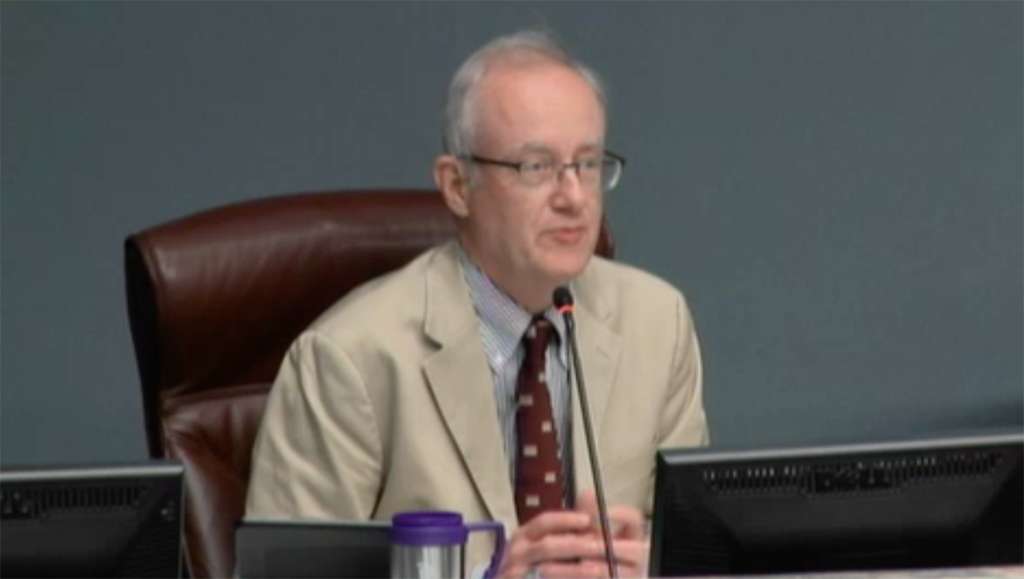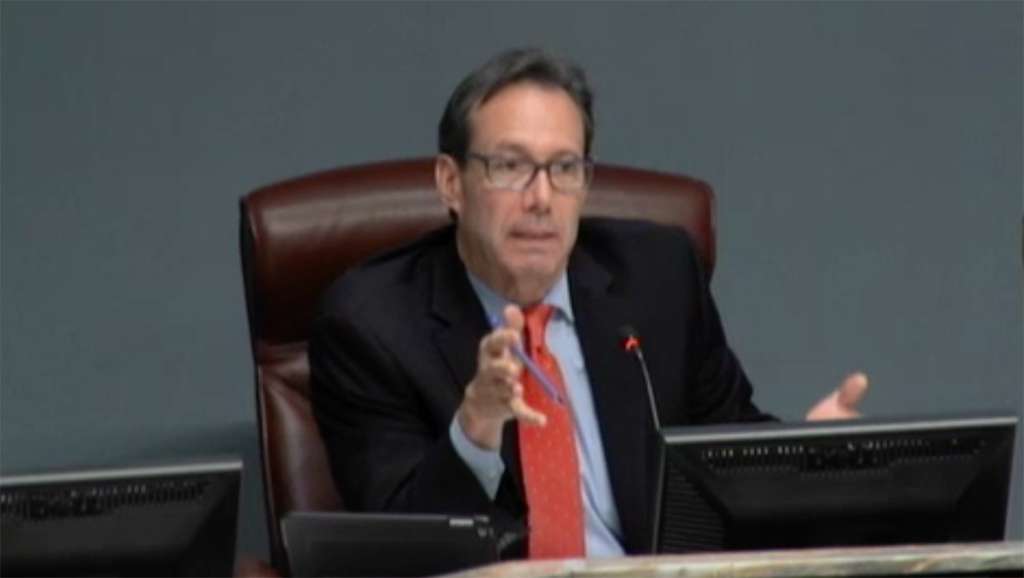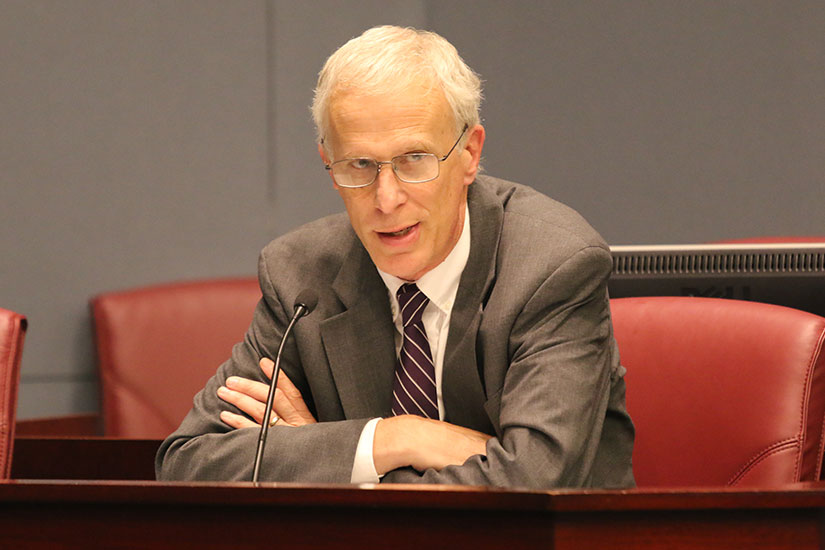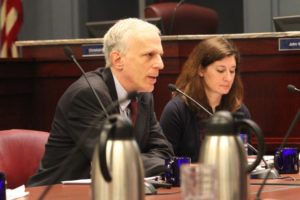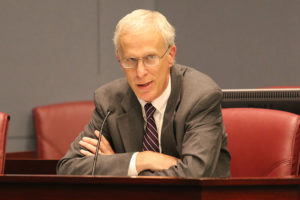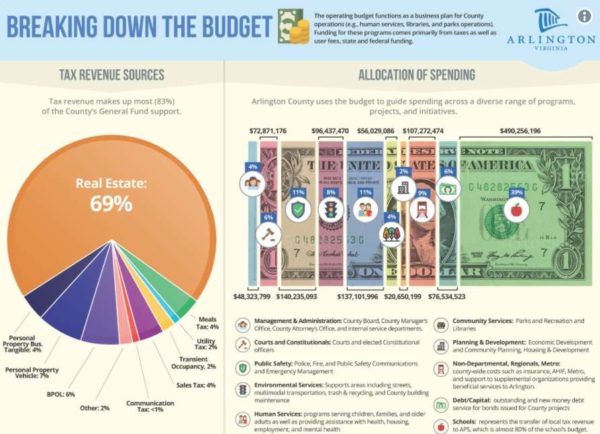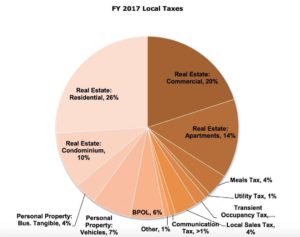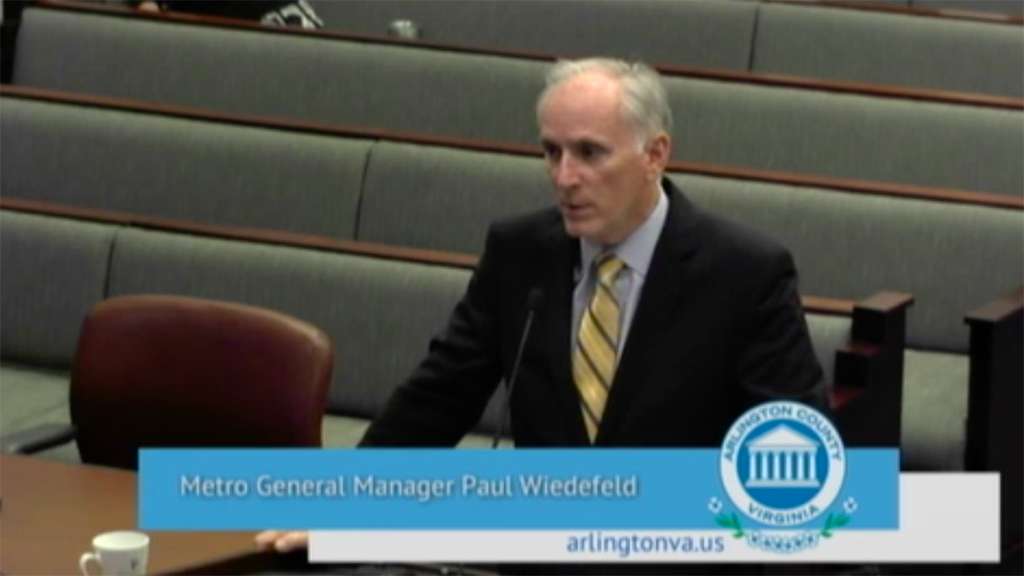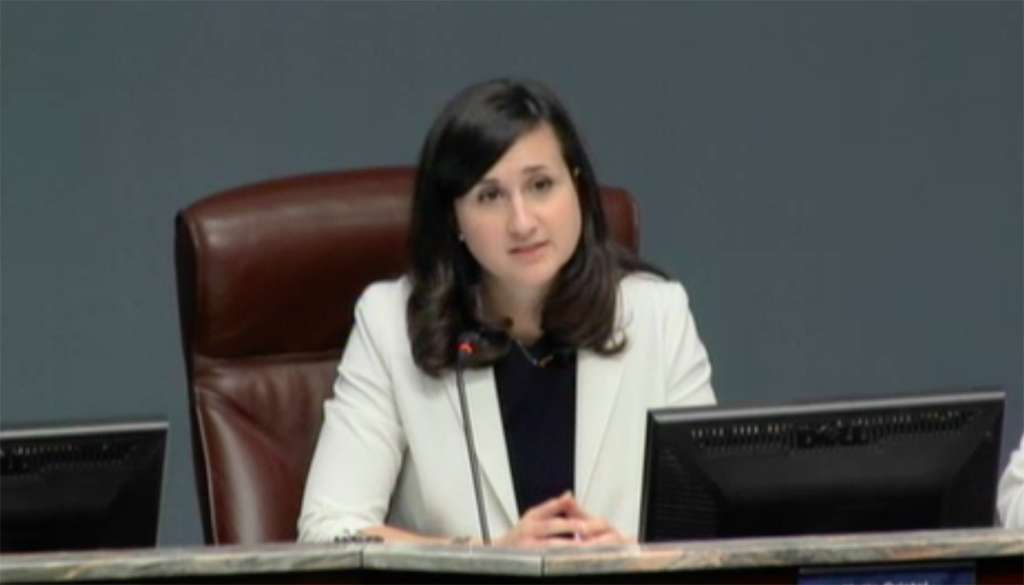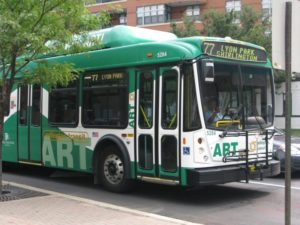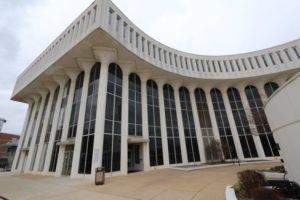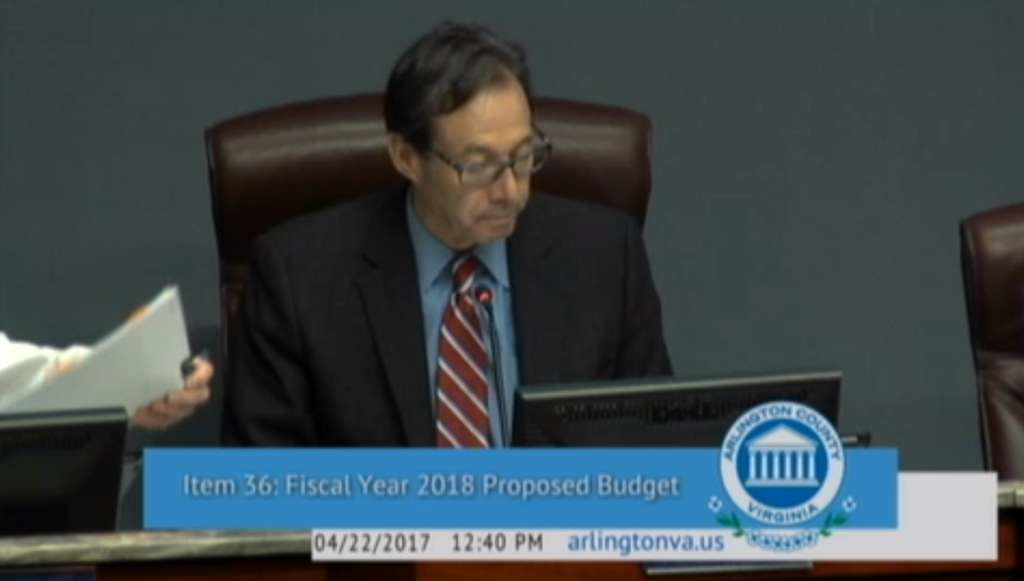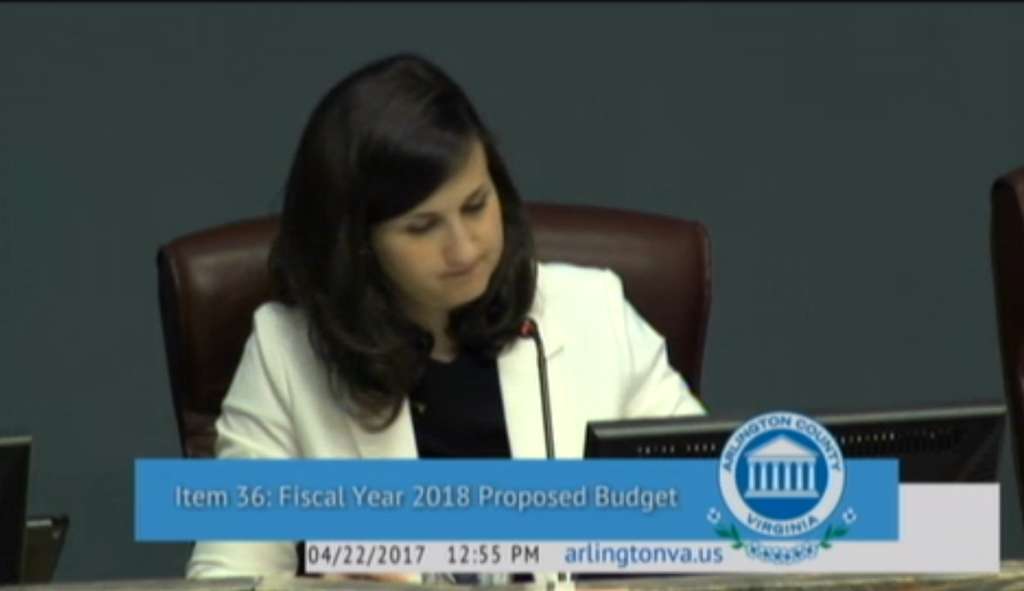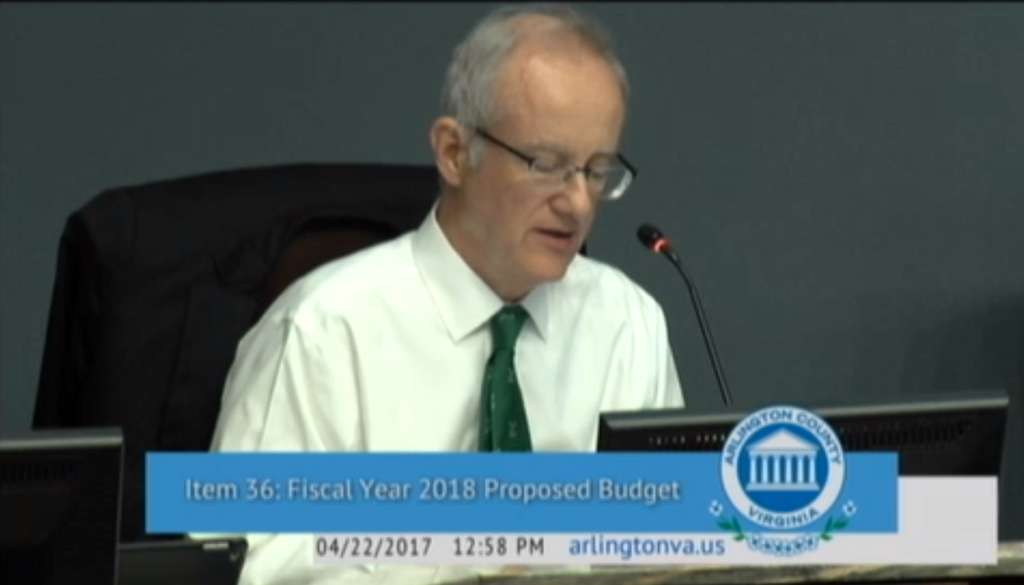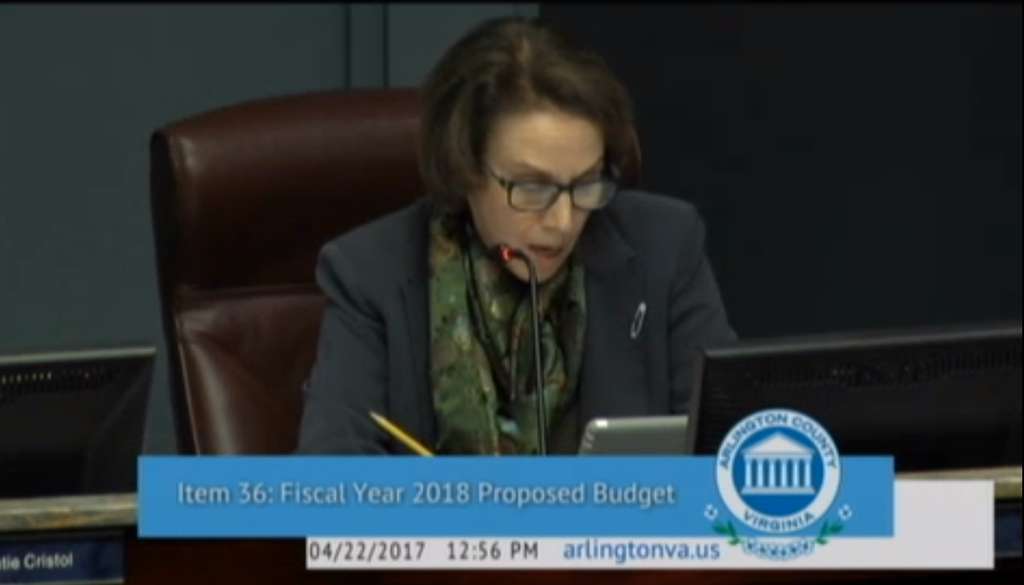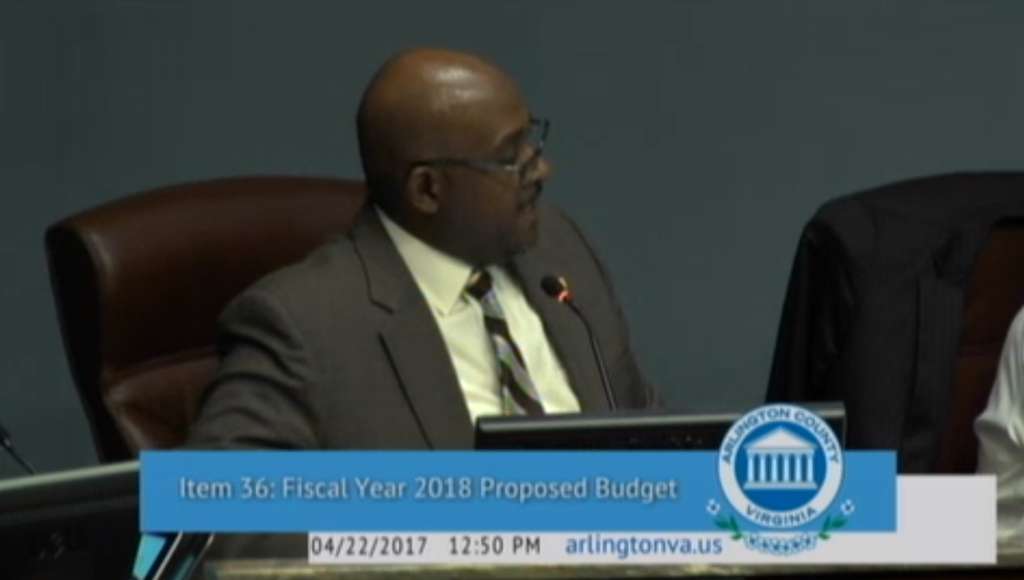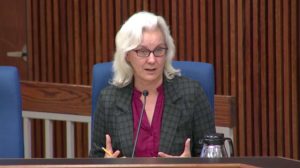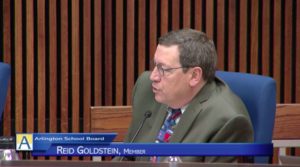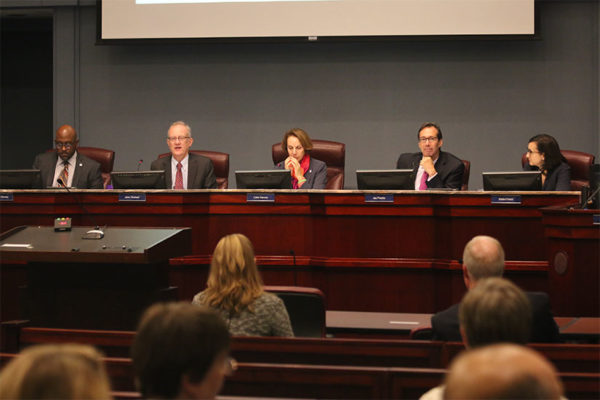The Arlington County Board voted to allocate the just-over $11 million in surplus funds to five “near-term” needs, but clashed over its use for affordable housing.
Board members voted 4-1 to follow County Manager Mark Schwartz’s recommendations and allocate the funds in the following ways:
- Affordable Housing Investment Fund: $5.2 million in one-time funding to be set aside for the FY 2019 budget.
- Critical Life Safety Needs: $2 million for unanticipated security system upgrades to the county’s Justice Center in Courthouse.
- Employee Compensation: $1.75 million to reflect changes in federal law on several position classes in public safety.
- County Manager Operating Contingent: $1.25 million to address “unforeseen needs that arise during the fiscal year without reprioritizing or cutting other programs.”
- Facility Studies: $900,000 to primarily fund additional site analysis at the Buck and Carlin Springs sites, as directed by the Board.
Board member John Vihstadt voted against the proposal, and instead tried to free up the funds for three items — the Affordable Housing Investment Fund (AHIF), the manager’s operating contingent and facility studies — for next year’s budget cycle. Vihstadt said those three recommendations were not emergency needs.
“These may well be necessary and appropriate, but this is not reason enough for me to short-circuit the extensive and robust budget process the manager has already begun just because the money is here now,” Vihstadt said. “It doesn’t mean that every penny should be spent. Let’s hold this up to the air and the light and the sun and consider everything holistically as part of the budget cycle that comes in the next few months.”
But Vihstadt’s plan failed on a 4-1 vote, while a similar plan by Board member Libby Garvey to not allocate the $5.2 million in AHIF funding and instead give Schwartz room to make a decision on where it could go went down 3-2.
Fellow Board members were critical of the proposals. Vice Chair Katie Cristol said it is imperative for the facility studies to advance, while Board chair Jay Fisette said denying money for affordable housing was “undermining a key priority to the community.”
“In my view, Mr. Vihstadt’s alternative proposal undermines the current Board priority on affordable housing,” Fisette said.
At the same meeting, the Board provided its budget guidance to Schwartz for FY 2019, and asked him to propose a “balanced budget within the existing tax rate.” The guidance also calls on Schwartz to “include expenditure or service enhancements that are fully offset by reallocations or fee revenue increases.”
The Board approved a 1.5-cent property tax hike for FY 2018 earlier this year, and expects to see moderate revenue growth for FY 2019.
“However, there is uncertainty regarding the impact of the state and federal budgets, as well as potential legislative changes to federal income tax policy, on the County, and real estate assessments are not yet known,” the Board wrote. “Further, the projected moderate increase in revenues is not keeping pace with budget pressures in expenditures, creating an expected budget gap of $10-13 million for FY 2019.”
Board members called on Schwartz to maintain affordable housing funding, and allocate 46.6 percent of county revenue to Arlington Public Schools, consistent with previous years.
They also said Schwartz should include funding for Metro that does not exceed the proposed 3 percent cap on annual increases in funding, and assumes that a new state or regional funding source will cover higher capital costs.
The budget process, which is already underway for FY 2019, will kick into high gear in the new year.


